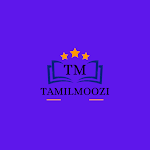1914 is a turning point in world history. The political and social processes that began in 1789 culminated in the First World War that broke out in that year and decisively shaped the course of the twentieth century. Historians therefore
call this as ‘the long nineteenth century’. This was the first industrial war that drew on the economic resources of the entire world, and also affected large sections of the civilian population. The political map of the world was redrawn.
Three major empires lay shattered by the end of the War: Germany, Austria–Hungary, and the Ottomans. The biggest outcome of the War was the Russian Revolution. It was a unique event as well as the first revolution of its kind
in world history. For the first time, countries tried to bring about world peace through the League of Nations. In this lesson, we discuss the circumstances leading to the outbreak of the First World War and its repercussions, including
the Russian Revolution and the formation of an international peace organisation, namely the League of Nations.
The aim of capitalistic industry was to produce more and more. The surplus wealth
thus produced was used to build more factories, railways, steamships and other such undertakings.Revolution in the means of communication and
transportation in the latter half of the nineteenth century facilitated the process of European expansion in Africa and other places.A striking feature of nineteenth century was that Europe emerged as the dominant power while Asia and Africa were colonized and exploited. Within Europe, England held a pre-eminent position as the world leader of capitalism. An ever-growing demand for markets and raw materials made the capitalist powers race around the world for expanding their empire for exploitation.
After 1870, the alliance of industry and finance seeking profits in markets for goods and capital, which was an essential characteristic of imperialism, became evident in the latter half of the nineteenth century. The old ideas of free trade collapsed. There were trusts in the USA and cartels in Germany.
Capitalism inevitably led to imperialism. According to Lenin, imperialism is the highest stage of capitalism. Besides being a market for surplus goods, colonies served another purpose.Imperialism was not just about colonies. It became a total system, the logic of which was total militarisation and total war.
In the nineteenth century, European powers had colonised many other countries. By1880,most of the Asian countries had been colonised.Only Africa was left. The occupation, division and colonisation of Africa took place from 1881to 1914. After 1870, England, France, Belgium,Italy and Germany joined in the scramble for
colonies.
Despite the lead in industrial growth and the control of a vast empire England was not satisfied. England was in competition with Germany and the United States, which were producing cheaper manufactured goods and thus capturing England’s markets. National rivalry led to frequent clashes between these
great powers in Asia and Africa and Europe.
In Asia, Japan during this period (Meiji era from 1867 to 1912), imitating Western
nations had become their equal in many respects. Though the outlook of the rulers
still remained feudal, Japan took to Western education and machinery. With a modern army and navy, Japan had emerged as an advanced industrialised power. In 1894 she forced a war on China. The crushing defeat of China by little Japan in the Sino-Japanese War (1894-95)surprised the world. Despite the warning of the
three great powers Russia, Germany and France– Japan annexed the Liaotung peninsula with Port Arthur. By this action Japan proved that it was the strongest nation of the East Asia.
Japan, however, in view of the pressure mounted by European Powers, soon gave up its claim over Port Arthur. Russia took advantage of this and sent a large army to Manchuria.Japan entered into an alliance with England in 1902 and demanded that Russia withdraw troops from Manchuria. Russia underestimated Japan. In 1904 the war began between the two countries. In this Russo-Japanese War, Japan
defeated Russia and got back Port Arthur. After this War Japan entered the “circle of the great Powers”.
SAI 10 th social public exam important questions 2025
SAI 10 th social public exam important questions and answers Tamil medium
SAI 10th social public exam important questions and answers English medium
Keywords
10 th social public exam important questions 2025
10th social public exam important questions 2025 tamilnadu
10th social public exam important questions 2025 tamil medium
10th social public exam important questions 2025 term 2
10th social public exam important questions 2025 pdf
10th social public exam important questions 2025 term 1
10th Social Science Important Questions PDF Download
10th social public exam important questions 2025 english medium
10th Social Science Important Questions PDF Download
10th Social Science Important Questions PDF Download Tamilnadu
10th Social Science Important 5 Mark Questions English Medium PDF 2024
10th Social Science Important questions 2024
10th Social Science Important Questions PDF English Medium
10th Social Important Questions 2024 PDF
10th Social Science Important 8 Mark Questions English Medium PDF
Social important questions Class 10 State Board
10th Social Science Important Questions English Medium
sai k mega guide social science tamil medium
Sai k mega guide social science tamil medium pdf free download
Sai k mega guide social science tamil medium pdf download
Sai 10th social public exam important questions and answers 2025






0 கருத்துகள்